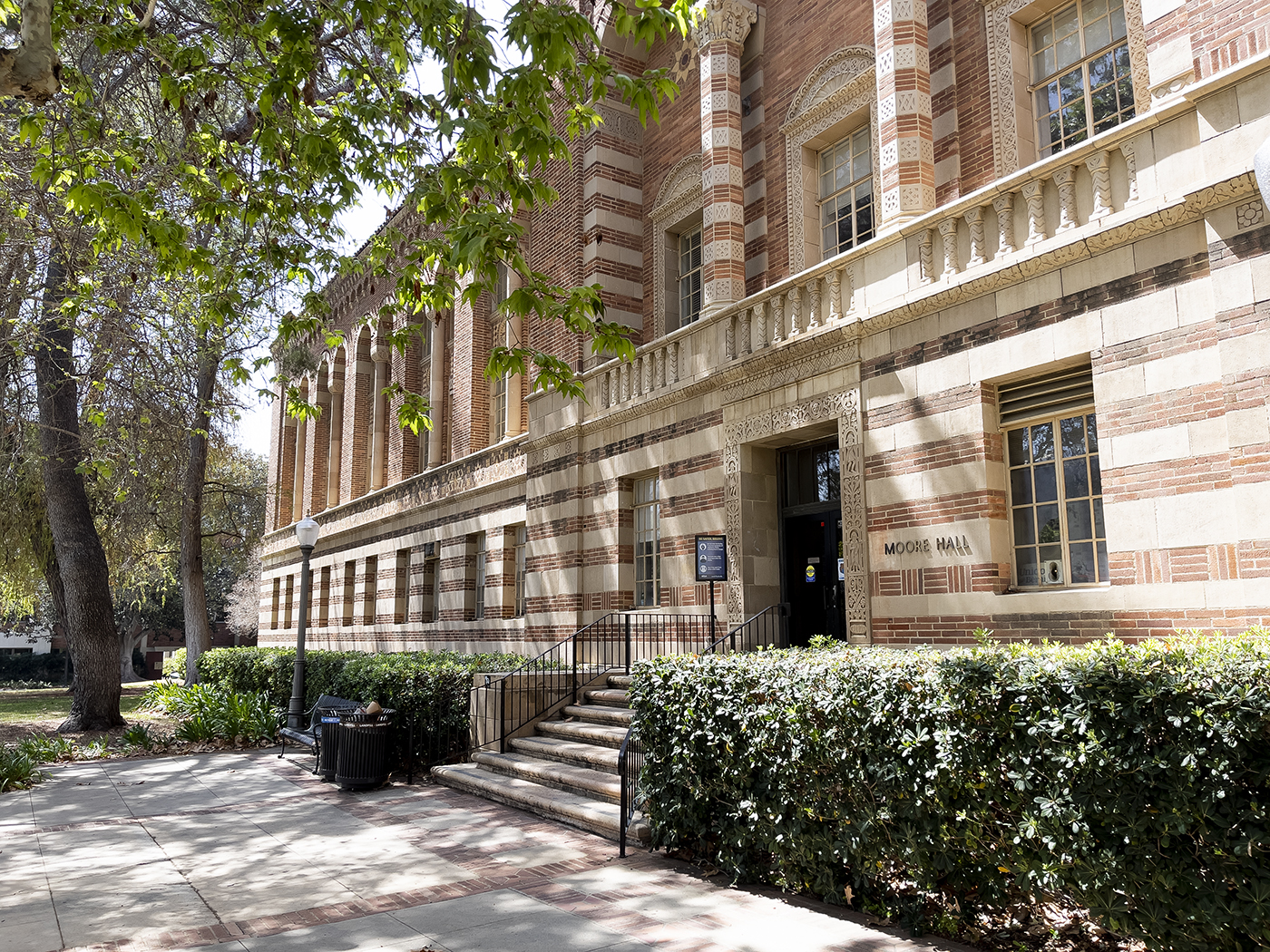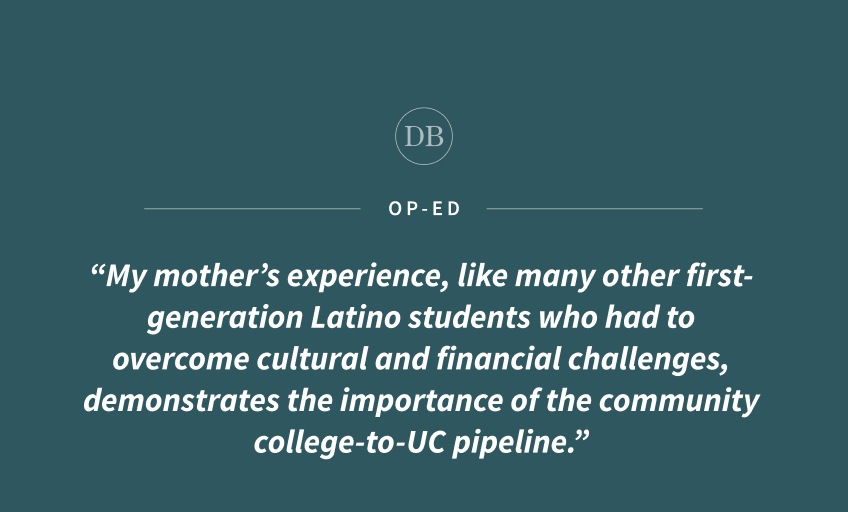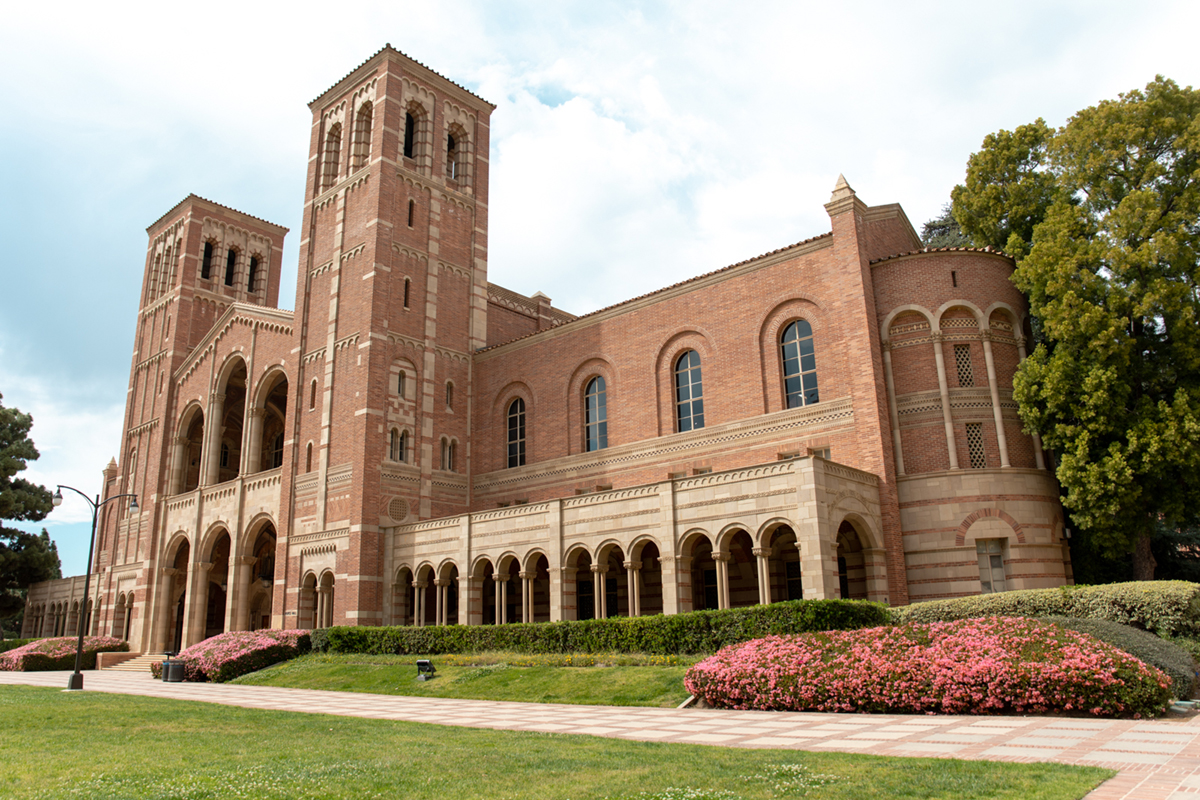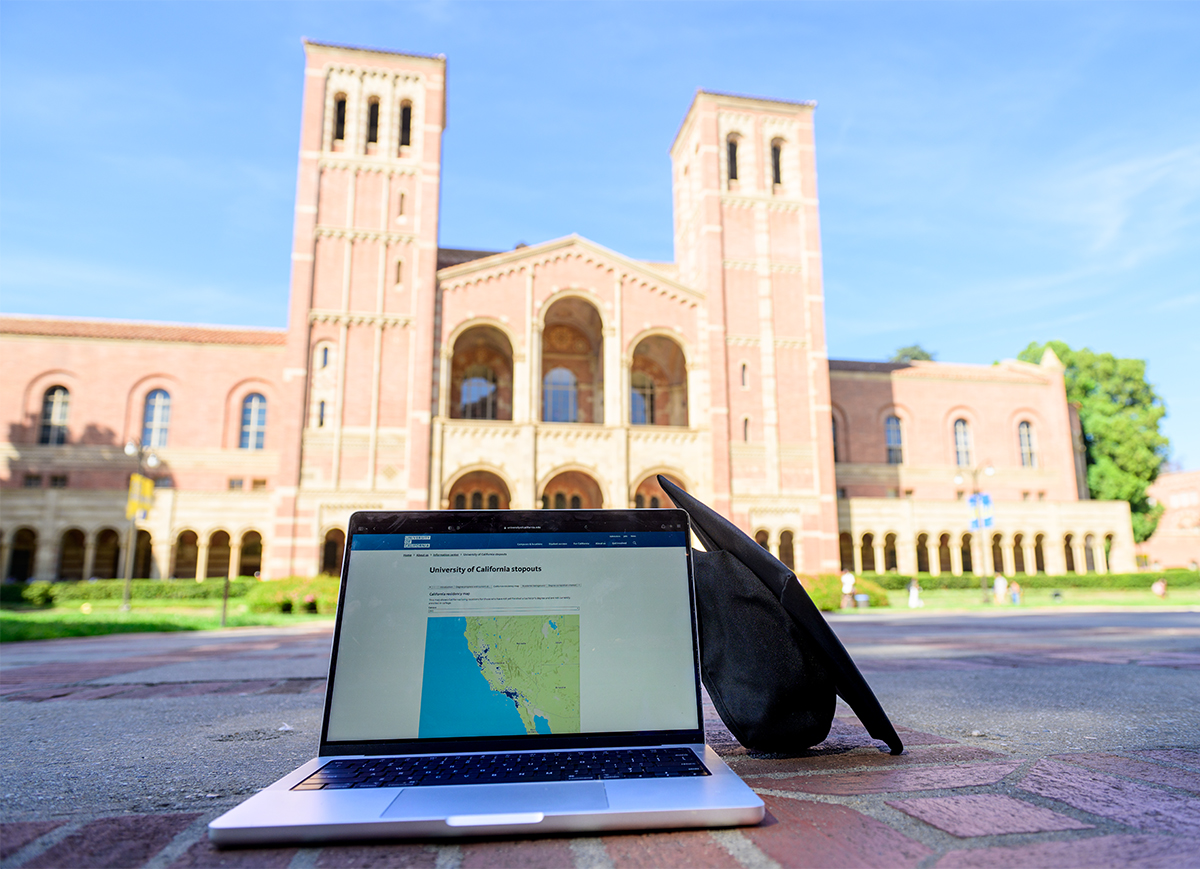Community college bachelor’s degree programs positively affect Latino community

Pictured is Moore Hall, which houses the School of Education & Information Studies. (Daily Bruin file photo)
By Paula Zepeda
March 5, 2024 4:57 p.m.
This post was updated on March 7 at 10:03 p.m.
A recent issue brief by UCLA researchers found that community college bachelor’s degree programs may positively affect the Latino community.
The California state legislature passed a law in 2014 titled Senate Bill 850 that permitted community colleges to initiate baccalaureate degree programs. A recent issue brief published by the UCLA Latino Policy & Politics Institute last month describes Latino students as having benefited from those programs through lower student debt and high graduation and employment rates.
Davis Vo, a co-author of the report, said the research shows the success of community college bachelor’s degree programs and how they can affect underserved communities in California.
“We see underrepresentation of Latine students in CCB (community college bachelor’s degree) enrollment in California,” said Vo, who is also a doctoral student in education. “But then we also see that for Latine students who are able to participate in the program … they experience really good graduation rates, and they experience really good labor market outcomes like wage gains.”
A key finding of the issue brief was that 64% of Latino students in CCB programs graduated and received bachelor’s degrees within two years, which is a similar graduation rate to non-Latinos in CCB programs.
The issue brief also found that Latino graduates reported employment rates of 94% and lower student loan rates than the average state rate among college graduates.
Cecilia Rios-Aguilar, co-author of the report and a professor of education, said the results are promising, especially because Latinos in California have historically faced structural barriers in higher education.
Both co-authors said they were interested in investigating how CCB programs support Latino students. Rios-Aguilar added that the issue brief’s findings were derived after collecting survey data from community colleges and speaking directly to students, faculty and staff tasked with leading CCB programs.
The issue brief also highlighted the barriers Latino students face in higher education, such as high tuition costs, inequities in funding and lower numbers of geographically accessible colleges in places with high Latino populations.
“Structurally, community colleges are severely underfunded,” Rios-Aguilar said. “Yet they’re the institutions that enroll the most significant numbers of low-income first-generation students of color.”
An estimated 640,000 Latino students enrolled in California Community Colleges in the fall of 2022, around twice as many as the roughly 285,000 students enrolled in California State University and UC campuses.
Amber Rivera-Munoz, a fourth-year psychology student who transferred to UCLA from a community college, said she did not know about CCB programs until she took Rios-Aguilar’s class last spring.
She said, since she is from San Diego, she would have benefited from the program if she had been aware of the option before transferring.
However, UCLA contains diversity and a network of opportunities that she would not find in community colleges, Rivera-Munoz said, adding that she believes these aspects are important for career development.
“UCLA has a very diverse population that not a lot of community colleges have,” she said. “It’s needed for students to continue working within their career and their personal lives.”
Rios-Aguilar said she hopes community leaders and the federal government realize the inequities communities of color experience in higher education and that CCB programs provide increased accessibility to obtaining bachelor’s degrees. She added she feels UCLA has a responsibility to support community college resources because the university is well-endowed.
Vo said he thinks more resources should be invested in CCB programs because, although the programs have the least resources in the higher education system, they are also asked to also execute outreach and marketing activities.
“This is a college option that’s available,” Vo said. “It might not be for everyone, but I think it’s important that people are aware that this is an option that exists.”





